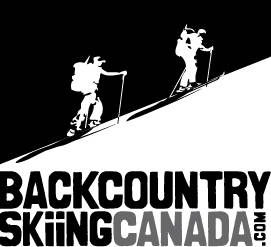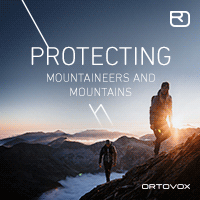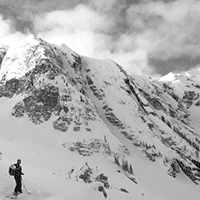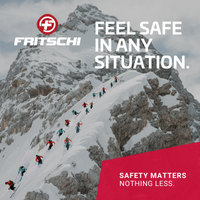Carbs, Your Friend in The Mountains
Backcountry skiing is physical; you walk uphill, ski, and repeat, often for hours on end. This is hard work and anyone who has spent a day in the backcountry knows how much energy and food is required to ski multiple laps.
While we take snacks on our tours have you ever asked yourself what is the ideal snack for a day in the backcountry?
Well, the answer is something with carbohydrates.
Carbohydrates are your friend in the mountains. You need them for energy and they also provide the body with warmth. So let’s look at exactly why your body needs them, how much you should bring into the backcountry, and good sources of them.
How Carbohydrates Give You Energy
You want to eat carbohydrates in the backcountry because they give you energy. Without getting too scientific, once eaten carbohydrates are broken down into smaller sugars. These smaller sugars are then used by your muscles as fuel to perform contractions (movements). Leftover sugars are stored in the muscles and liver as glycogen for future use.
Carbohydrates Help Keep You Warm
Another benefit of eating carbohydrates is warmth. When your metabolism digests these sugars it produces heat as a byproduct. Therefore, on cold missions snacking regularly will help you stay warm and keep you mentally sharp.
Eat Them Often
To reap their benefits carbohydrates need to be eaten often. If you are going on a tour that will be longer than two hours you should eat every hour.
Shoot to consume 20-40 grams of carbohydrates per hour. This will keep your body topped off and give you energy for the whole day.
If it’s a quick side country lap, under two hours, you do not have to eat. Finally, if you are going on an all-day mission it’s important to get a real meal halfway into it. Try to consume an even ratio of proteins, fats, and carbohydrates.
Good Carbohydrate Sources
Finally, let’s talk about snacks. The best carb sources are ones that are easy to digest, think as little ingredients as possible. Here is a list of good carb sources to bring on your tours this winter.
- Fruit (Bananas, Apples, Peaches, Pairs): 20-30gs
- Dried Fruit Bars (Larabars, KIND Bars, Fruit Strips): 15-40gs
- Home Baked Goods: Depends on the item
- Prepackaged Gels and Chews: 15-40gs
- Oat (Bring a Thermos of Hot Water): 20-40gs
- Prepackaged Protein Bars: 20-50gs
Set Yourself Up for Success
The next time you’re headed into the backcountry set yourself up for success and bring enough food, specifically carbohydrates. Keeping yourself fed and full of energy can be the difference between staying sharp and getting sloppy out there.









